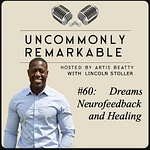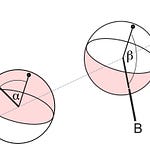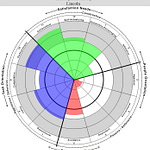“The measure of intelligence is the ability to change.”
— Albert Einstein
Is Intelligence a Real Thing?
The history of intelligence is odd. Intelligence is variously defined and plays different roles. Even within one culture, different standards are applied to different genders, ages, and people of different inclinations.
Historically, intelligence was assumed as something you did or did not have. In the past, people did not have much education. More accurately, the lucky ones did and the unlucky ones didn’t. It was assumed that intelligence preceded your ability to learn and it could be measured by what you knew.
Despite now having tests to measure intelligence, it’s still rated based on what you have learned. Our IQ tests are supposed to measure a person’s fundamental aptitude, but this is a fiction. It’s convenient because it ends up justifying the original premise that your intelligence is what you can learn. What you can learn is measured by what a particular group, inevitably the group in power, thinks is valuable.
We’re told these IQ tests are justified because people don’t change their scores over time. This is a “low IQ” argument which is a good reflection of how notions of IQ justify themselves. People don’t change their scores on IQ tests over time not because they can’t, but because they choose not to learn how to.
I admit that most people would have difficulty changing, growing, or learning under any situation, but that’s not to say that they can’t. Learning is hard, creativity is lonely, and changing oneself is painful. Most people simply won’t do it, and this is what intelligence tests measure: not your ability but your inclination.
I do not doubt that IQ tests measure something—there are differences between people—but two fallacies are clear. First, that intelligence tests measure a fundamental aptitude. And second, that they measure a fixed aspect of your nature. That is, that you cannot learn to be more “intelligent.” I believe you can, it’s just that 99% of people never will. For these people, their IQ score does reflect their aptitude and their future.
It’s Largely Propaganda
The history of IQ tests mirrors the history of psychology as a tool for marketing and propaganda. A landmark was Edward Bernays 1928 book “Propaganda” which coincided with the ascendance of psychotherapy (Bernay’s was Freud’s nephew), behaviorism, social psychology, mass information, and the academic field of mental health. But the term “propaganda” was coined by the Catholic Church in the 1600s to describe its efforts to discredit Protestant teachings. And it’s been with us since well before that.
The most famous Greek philosopher, Plato, was essentially a propagandist. His fame rests not on what he taught but what he learned from Socrates. Socrates was the smart one, and he was so averse to propaganda that he refused to write anything down.
You’ll recall Martin Luther’s famous Protestant proclamation nailed to the church door, and the essential use of propaganda by German Fascists in WWII. The blooming of propaganda was driven by information, not education. And we’re in a new information revolution now.
You’ve probably heard that the Soviet state used to commit dissidents to psychiatric institutions because dissidence was equated with deviance and maladjustment. We equate dissidence with deviance in our culture too, we just handle it differently.
In more democratic societies, we use the media to channel information and guide social attitudes to marginalize or deprecate dissident opinions. The news media are not our major tool for social engineering, they are just presented as authorities, which they transparently are not.
The major tool for social engineering is the entertainment industry, and that’s because it’s emotions that drive all attitudes. The media, and its intellectual pretensions, just provide justifications.
First, It’s What You Believe
If you’d like to improve your intelligence and make a better future, schedule a free call:
Listen to this episode with a 7-day free trial
Subscribe to Stream of Subconsciousness to listen to this post and get 7 days of free access to the full post archives.













